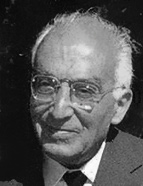

SDA ’ s work is polyhedral. In order to ‘classify’ it, we need to analyse its various faces. We cannot understand it by looking at a single edge.
In fact, the historian-physician was an expert in the heuristics and hermeneutics of the sources that provided reliable support for the narrative of the facts and the individual actions of ‘flesh and blood’ characters. He masterfully sketched the ‘portrait’ of great historical figures: D. Fernando, Mestre de Avis, Prince D. Pedro, lord of Penela, and with sensitivity , the loves of Pedro and Inês. He made a remarkable contribution to Portuguese historiography in terms of understanding the political and institutional aspects of the crisis of 1383-1385. He travelled in particularly innovative and daring historiographical fields, given the circumstances of the time when he developed part of his academic life in the areas of local and regional history, particularly the history of the municipality of Penela, as well as the history of food, a topic that inspired later studies, mainly those carried out in Coimbra by Maria Helena da Cruz Coelho and Maria José Azevedo Santos.
SDA bequeathed us a mirror of his tastes: his library made up of 16,000 volumes representing his personal interests, fields of research and teaching. The range of subject areas represented in this library is very broad: Archaeology, Architecture, Art, Agriculture, Biography, Cartography, Law, Sport s , Economics, Ethnography, Philosophy, Geography, History, History of Europe, Linguistics, Literature, Medicine, Psychology , and Religion. His distinguishing core, however, is made up of local monographs, studies published in the 19 th and 20 th centuries that contain fragments of the history of all the Portuguese municipalities , books that he persistently sought out in bookshops and the catalogues of second-hand bookshops. He lived an austere life, a circumstance that allowed him to build up savings, which he used to buy and start the preservation work on the Germanelo Castle, which the Penela T own C ouncil has continued.
This work is financed by national funds through FCT - Foundation for Science and Technology, I.P, in the scope of the projects UIDB/04311/2020 and UIDP/04311/2020.
